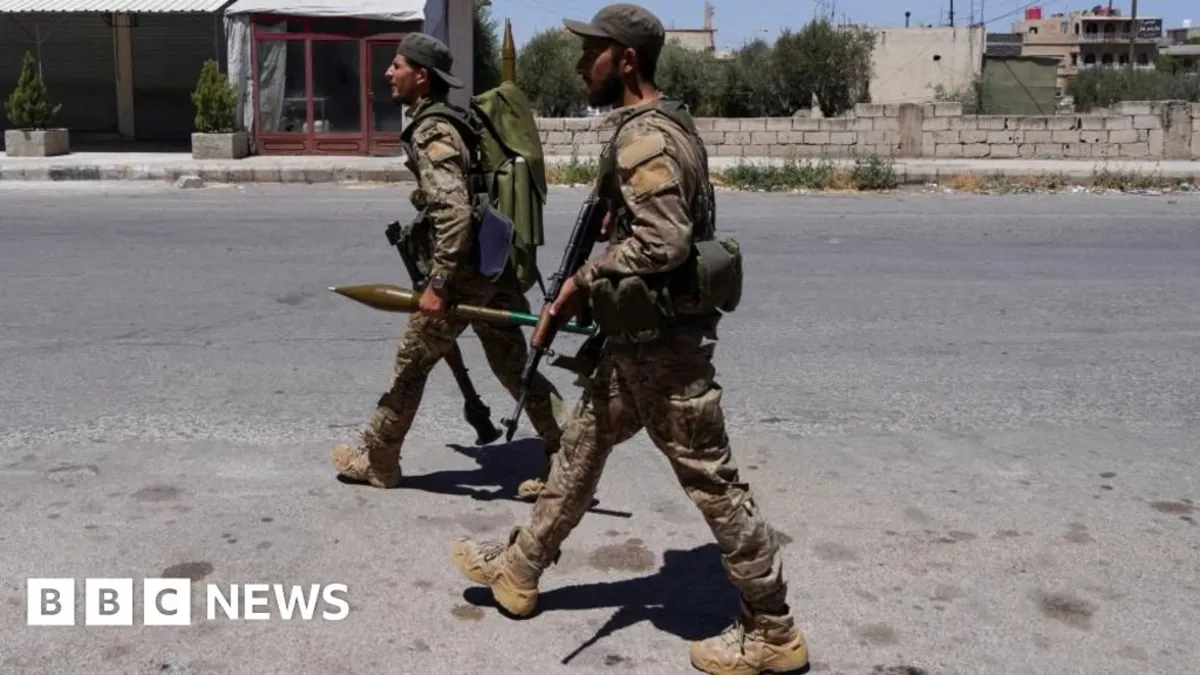
The Syrian presidency has announced the deployment of a new military force aimed at curbing the escalating sectarian violence between Bedouin and Druze fighters in southern Syria. This decision comes in response to the intense clashes that erupted near the city of Suweida, which have resulted in nearly 600 fatalities since the violence began on Sunday. Syrian interim President Ahmed al-Sharaa has called on all factions involved to exercise restraint as the situation continues to deteriorate.
Reports of renewed fighting in Suweida surfaced on Friday, prompting the government to take action. Residents have accused government troops of killing Druze civilians and conducting extrajudicial executions. In a provocative move, Israel targeted locations within Syria to compel the government forces to withdraw from the tense Suweida province.
On the same day, the US ambassador to Turkey indicated that a ceasefire had been agreed upon by Israel and Syria. Ambassador Tom Barrack shared this development via a post on X, revealing that Israeli Prime Minister Benjamin Netanyahu and President Sharaa had reached an understanding that is supported by neighboring countries, including Turkey and Jordan. Barrack urged the Druze, Bedouins, and Sunnis to disarm and collaborate in forging a new, united Syrian identity characterized by peace and prosperity.
Despite the reported ceasefire, neither Israel nor Syria has publicly confirmed the agreement. Prior to Sharaa's announcement regarding military deployment, an Israeli official mentioned that Israel would permit a limited entry of Syrian Internal Security Forces into Suweida for 48 hours. This measure aims to safeguard Druze civilians amid the ongoing instability in the region.
The predominantly Druze community in Suweida adheres to a unique faith that diverges from mainstream Islam, fostering a deep-seated distrust towards the jihadist-led government in Damascus. A correspondent from the BBC noted that sectarian hatred against the Druze is increasingly permeating across Syria.
Earlier this week, Volker Türk, the UN human rights chief, reported credible allegations of widespread violations, including summary executions and arbitrary killings in Suweida. These violations have allegedly involved members of the Syrian security forces, individuals linked to the interim government, as well as local Druze and Bedouin armed groups. Türk emphasized the urgent need for the violence to cease and for those responsible to be held accountable.
In a televised address on Thursday, President Sharaa expressed a commitment to accountability, vowing to prioritize the protection of the Druze. "We are eager to hold accountable those who transgressed and abused our Druze people because they are under the protection and responsibility of the state," he stated. He attributed the violence to outlaw groups, claiming that their leaders have resisted dialogue for an extended period.